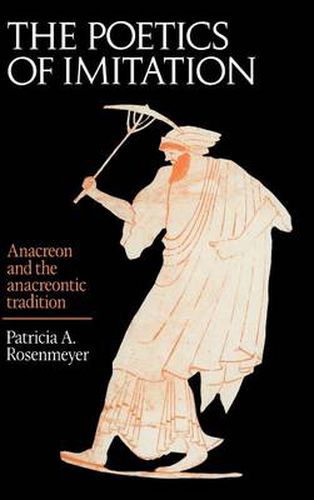Readings Newsletter
Become a Readings Member to make your shopping experience even easier.
Sign in or sign up for free!
You’re not far away from qualifying for FREE standard shipping within Australia
You’ve qualified for FREE standard shipping within Australia
The cart is loading…






Western literature knows the anacreontic poems best in the translations or adaptations of such poets as Ronsard, Herrick and Goethe. This collection of poems, once assumed to be the work of Anacreon himself, was considered unworthy of serious attention after the poems were proved to be late Hellenistic and early Roman imitations by anonymous writers. This book, the first full-length treatment of the anacreontic corpus, explores the complex poetics of imitation which inspired anacreontic composition for so many centuries in antiquity. The author begins with a reassessment of Anacreon’s own oeuvre, and then discusses the system of selective imitation practised by the anacreontic poets. The book explores what light the corpus can shed on ancient literary genres, intertextual influences, and the literary manifestations of symposiastic and erotic ideals in a post-classical society which looks back to an archaic model as its guiding force. The book concludes with a brief look at Byzantine adaptations and the anacreontic renaissance in Europe. A full translation of the anacreontic collection is included as an appendix and all Greek and Latin is translated to make the work available to those whose primary interest is European literature and the classical tradition.
$9.00 standard shipping within Australia
FREE standard shipping within Australia for orders over $100.00
Express & International shipping calculated at checkout
Western literature knows the anacreontic poems best in the translations or adaptations of such poets as Ronsard, Herrick and Goethe. This collection of poems, once assumed to be the work of Anacreon himself, was considered unworthy of serious attention after the poems were proved to be late Hellenistic and early Roman imitations by anonymous writers. This book, the first full-length treatment of the anacreontic corpus, explores the complex poetics of imitation which inspired anacreontic composition for so many centuries in antiquity. The author begins with a reassessment of Anacreon’s own oeuvre, and then discusses the system of selective imitation practised by the anacreontic poets. The book explores what light the corpus can shed on ancient literary genres, intertextual influences, and the literary manifestations of symposiastic and erotic ideals in a post-classical society which looks back to an archaic model as its guiding force. The book concludes with a brief look at Byzantine adaptations and the anacreontic renaissance in Europe. A full translation of the anacreontic collection is included as an appendix and all Greek and Latin is translated to make the work available to those whose primary interest is European literature and the classical tradition.